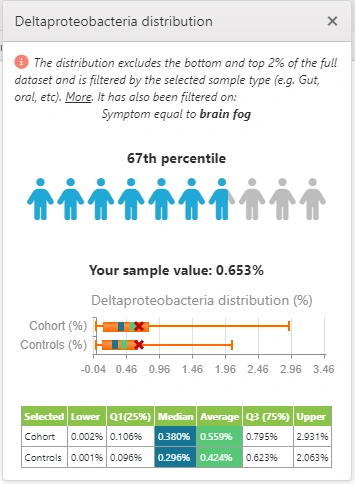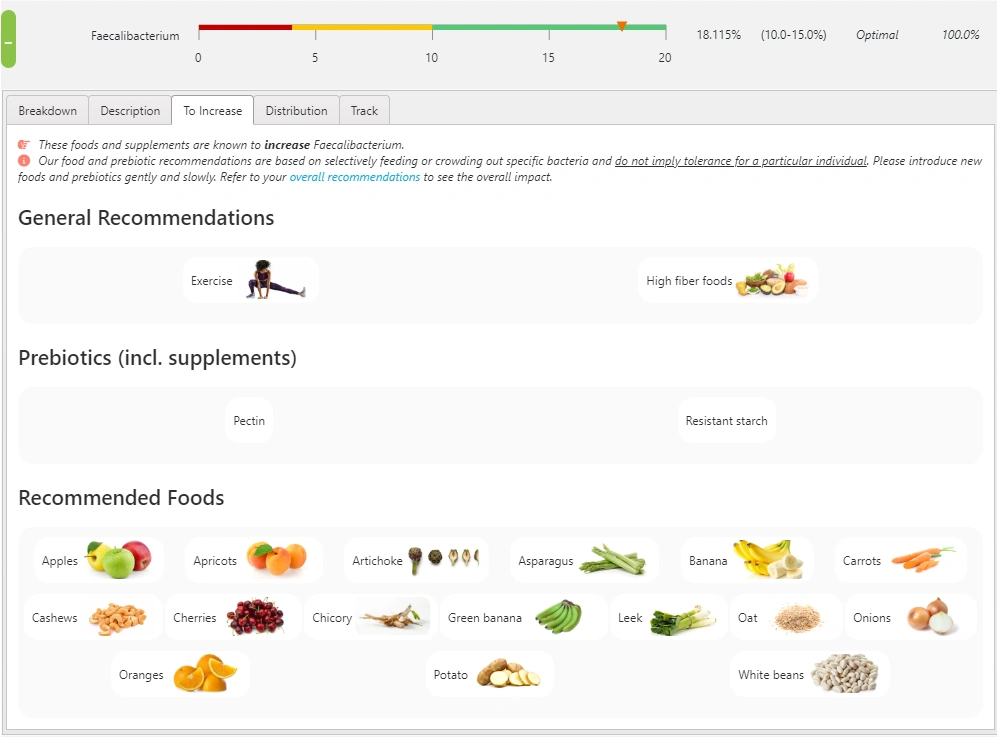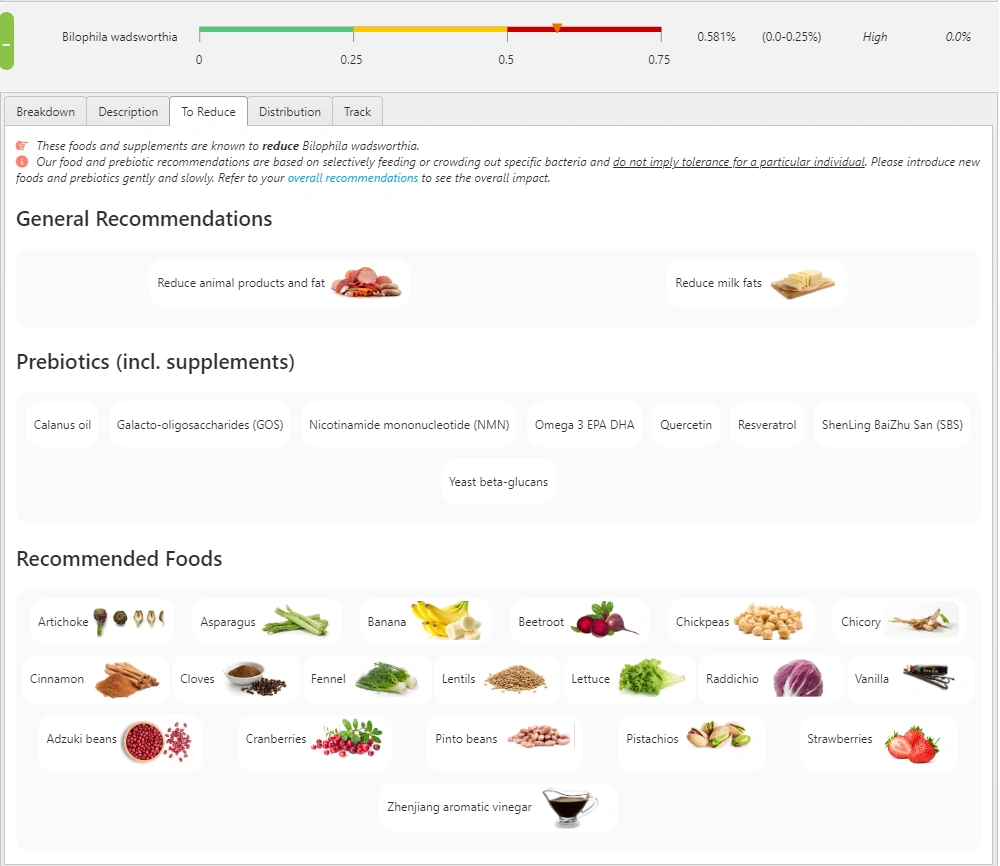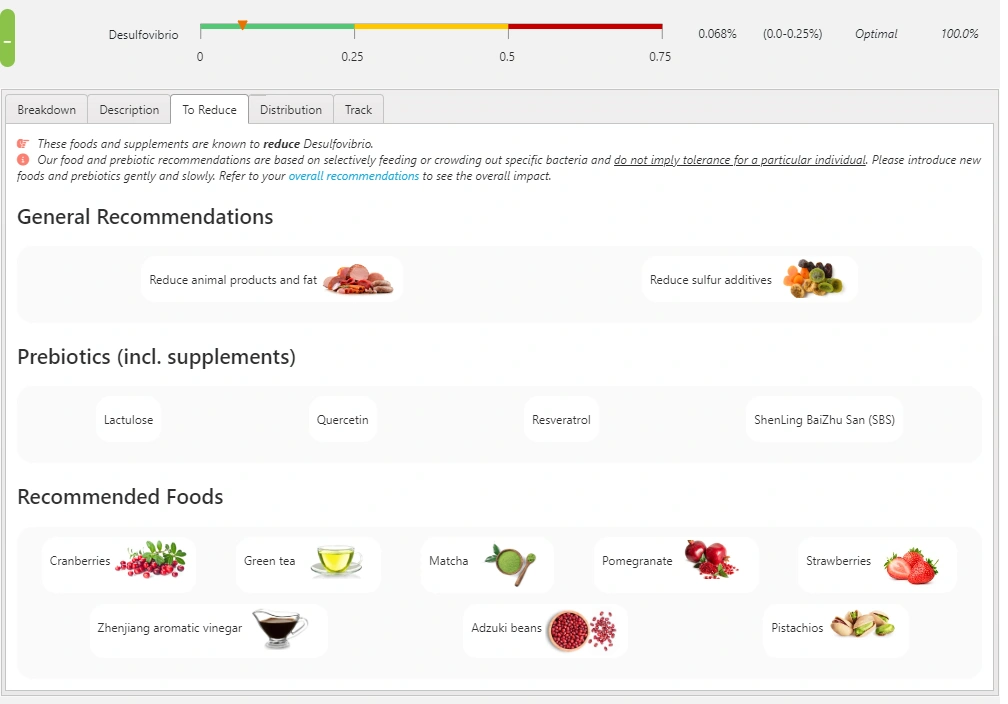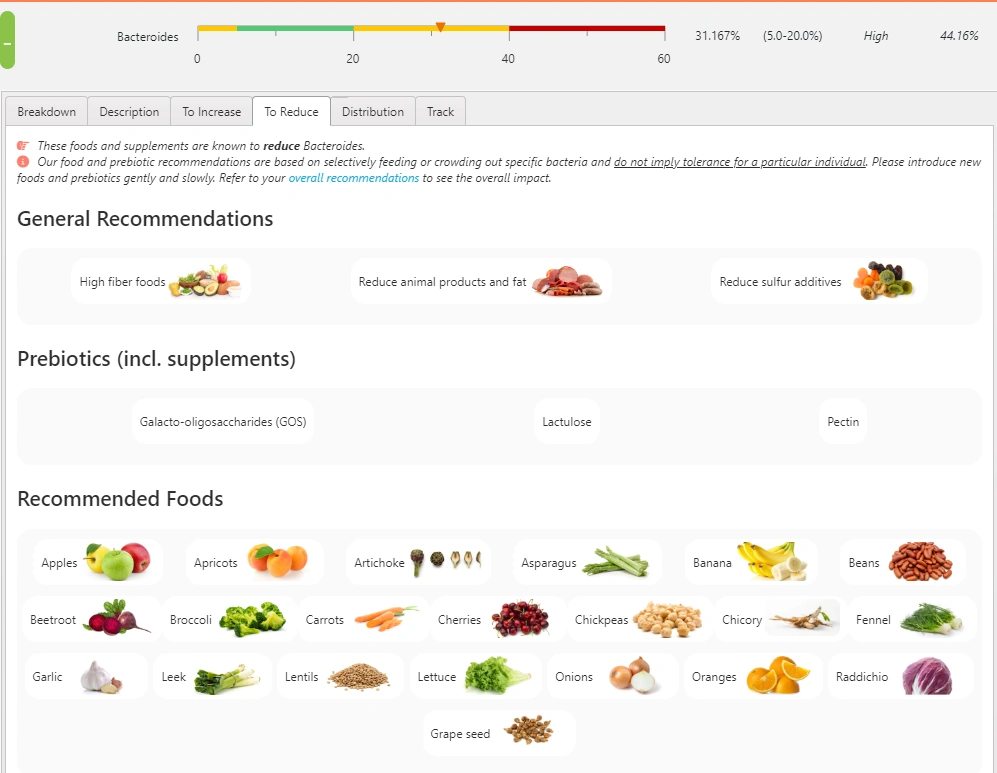
Top predictors of brain fog
The most commonly reported symptom in Biomesight is "brain fog", associated with 787 samples out of a total of 4778. That makes this symptom extremely common amongst Biomesight users as only 25% of users have completed their health profiles. Brain fog is not exactly a medical term but the general meaning is a subjective feeling that your mind is not as sharp as you would expect, potentially with difficulty concentrating and low mental energy.
We used our cohort analyzer to find the key predictors of brain fog. The table below summarizes the key findings. You can access the full model yourself in Biomesight. Look for a model called "Brain Fog". Please email support@biomesight.com for access to the cohort analyzer. You could also use the cohort selector to explore any other differences.
| Feature | Effect | Median Difference | Mean difference |
| Class Deltaproteobacteria | Higher | 21.53 % | 23.77 % |
| Genus Bacteroides | Higher | 16.01 % | 10.22 % |
| Species Bacteroides uniformis | Higher | 29.29 % | 18.93 % |
| Species Bacteroides cellulosilyticus | Higher | 47.83 % | 33.89 % |
| Genus Phascolarctobacterium | Higher | 35.00 % | 29.11 % |
| Species Anaerotruncus colihominis | Higher | 17.88 % | 17.98 % |
| Species Faecalibacterium prausnitzii | Lower | 17.67 % | 15.46 % |
| Genus Prevotella | Lower | 21.33 % | 37.12 % |
Based on our findings, higher levels of Class Deltaproteobacteria is correlated with brain fog. The primary genera within this class are the Hydrogen Sulfide (H2S) producing bacteria, Desulfovibrio and Bilophila, also included in the Toxins section in Biomesight. H2S bacteria is also sometimes implicated in SIBO. We have recently expanded the Biomesight recommendations for reducing both Bilophila and Desulfovibrio.
A lesser known bacteria, Phascolarctobacterium, is also showing a positive correlation according to our model. Phascolarctobacterium faecium, a species within this genus that is also showing a positive correlation, is a gram-negative, spore forming inhabitant of the human GI tract and is commonly seen in healthy subjects. It produces acetate from succinate.
Bacteria that appears to be protective against brain fog, or at least inversely correlated, as per our findings are Faecalibacterium Prausnitzii, a key butyrate producer. Butyrate feeds the enterocytes that make up the gut lining and it therefore makes sense that healthy butyrate values would be associated with less brain fog. Interestingly, Prevotella is also negatively correlated with brain fog. Those with higher Prevotella often have lower Proteobacteria (from what we have observed in Biomesight), however Prevotella does have itself Lipopolysaccharides (LPS) in it's cell walls, so can also contribute to systemic inflammation if there is a degree of gut leakiness.
We don't yet have recommendations for reducing Phascolarctobacterium in Biomesight, but a search of Pubmed identifies it as cross-feeding on succinate produced by other microbes, such as Bacteroides thetaiotaomicron (1). Unfortunately I could not find any research studies in Pubmed that have successfully found how to reduce this bacteria significantly with diet, but indirectly this can be achieved by reducing succinate producers. One study found that an increase in level of exercise led to a reduction in Phascolarctobacterium faecium (2). However, given the subjective nature of measuring and experiencing brain fog, I would say it is premature to consider this bacteria directly as a target bacteria to reduce brain fog.
Given these findings, following our recommendations to get the remaining bacteria identified above into range, if yours it out of range, could perhaps help with reducing brain fogginess.
For those without a Biomesight account, some of the main recommendations are summarized here:
To Increase Faecalibacterium
To reduce Bilophila
To reduce Desulfovibrio
To reduce Bacteroides
References
2. Host Factors Affect the Gut Microbiome More Significantly than Diet Shift
3. Phascolarctobacterium faecium abundant colonization in human gastrointestinal tract

